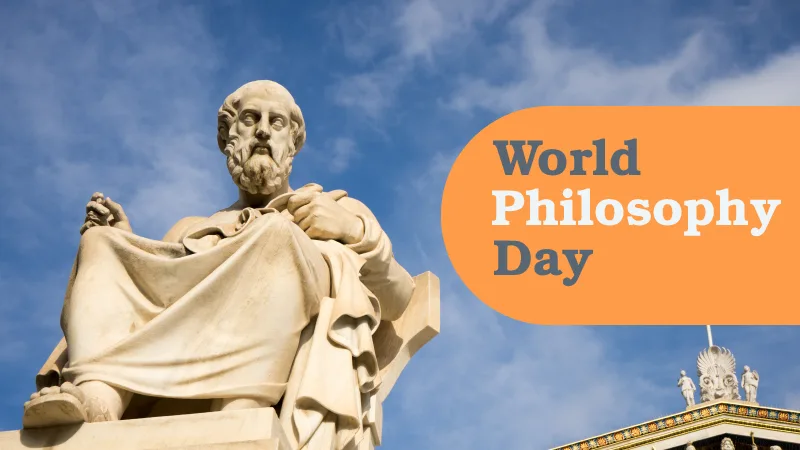By: Sheikh Sameer
On World Philosophy Day, celebrated on the third Thursday of November (21 November 2024), we take a moment to reflect on the significance of philosophy in shaping human thought and culture. In the breathtaking landscapes of Kashmir, the philosophical tenets of Sufism have woven a profound and enduring legacy that resonates with the ideals of love, tolerance, and unity. As we honour this day, we must recognise how Sufism has enriched Kashmir’s spiritual tapestry and fostered a culture of inclusivity and understanding. Sufism, often described as the mystical branch of Islam, emerged in the early centuries of Islam as a response to the growing materialism and dogmatism of the time. The movement emphasised a direct, personal connection with the divine, seeking deeper spiritual truths through love, devotion, and introspection. Its roots can be traced to the teachings of the Prophet Muhammad and his companions, who practised a simple, ascetic lifestyle focused on inner purity and love for humanity. As Islam spread across the globe, Sufism took on various cultural forms, adapting to local traditions and practices. This adaptability was particularly evident in the region of Kashmir, where Sufi teachings blended seamlessly with indigenous beliefs, resulting in a unique philosophical landscape. Sufism found its way to Kashmir around the 14th century, brought by esteemed Sufi saints such as Shams-ud-din Iraqi and Nund Rishi, also known as Sheikh Noor-ud-din Noorani. These saints established Sufi orders emphasising love, compassion, and universal brotherhood. Sheikh Noorani, revered as the “Lal Ded” of Kashmir, symbolises Sufi wisdom and spirituality. His poetry, rich in metaphor and profound insight, reflects the essence of Sufism—an invitation to transcend worldly concerns and embrace the divine within. The teachings of these Sufi masters emphasised the importance of individual spiritual development and communal harmony, urging people to rise above sectarian divides.
At its core, Sufism is deeply philosophical. It encourages followers to engage with existential questions about the nature of existence, love, and the divine. It promotes an understanding transcending the surface, advocating a journey inward to discover the self and its connection to the universe. The Sufi philosophy encourages followers to cultivate humility, love, and selflessness. Through meditation, poetry, and music, Sufis strive to achieve a divine consciousness where they experience unity with all creation. This is encapsulated in the famous Sufi saying, “I am in love with my beloved, not with the love of my beloved,” highlighting the profound depth of connection that Sufism seeks to cultivate. The influence of Sufism on Kashmiri culture is both profound and far-reaching. It has shaped religious practices, art, literature, and social norms. The famous Kashmiri poetry, known as Kashmiri Shairi, is heavily infused with Sufi themes, celebrating love, nature, and spirituality. Poets like Habba Khatoon and Lal Ded have inspired generations, their verses echoing the Sufi philosophy of universal love and the divine presence in everyday life. Moreover, Sufi shrines, known as dargahs, dot the landscape of Kashmir, serving as centres for community gathering and spiritual reflection. These sites foster a sense of belonging and collective identity, transcending religious boundaries and inviting individuals from all walks of life to seek solace and inspiration. The annual Urs festivals at these shrines, which commemorate the death anniversary of a Sufi saint, celebrate the lives and teachings of these saints, drawing people together in a spirit of unity and reverence.
In today’s world, where divisive narratives often overshadow narratives of peace and understanding, Kashmir’s Sufi heritage is a beacon of hope. The philosophy of Sufism, with its emphasis on love and acceptance, is more relevant than ever. It encourages individuals to embrace differences and find common ground, promoting a culture of dialogue and cooperation. Kashmir’s unique history of Sufism, which has often been at the forefront of promoting gender equality and social justice, has fostered a sense of identity that values pluralism. The teachings of Sufi saints remind us that spirituality is not confined to dogma; instead, it thrives in the soil of love and compassion. The message of Sufism invites us to look beyond labels and recognise our shared humanity. As we celebrate World Philosophy Day, reviving and upholding the age-old philosophies rooted in Sufism is crucial. Educational initiatives that promote Sufi literature, such as the poetry of Lal Ded and Habba Khatoon, Sufi art, like the intricate designs of Sufi shrines, and Sufi philosophy, which emphasises love and acceptance, can play a pivotal role in nurturing a new generation of thinkers and peacebuilders. Community programs facilitating interfaith dialogues and cultural exchanges further strengthen the bonds among diverse groups, fostering a spirit of unity and understanding. Local organisations, educational institutions, and cultural bodies can collaborate to organise events that highlight the teachings of Sufi saints, creating spaces for discussion and reflection on their relevance in today’s world. Workshops on Sufi poetry, music, and meditation can inspire individuals to connect with the deeper aspects of their spirituality.
On this World Philosophy Day, let us celebrate the rich tapestry of thought and spirituality that Sufism offers, particularly in the context of Kashmir. We can work towards a more harmonious world by embracing the teachings of love, tolerance, and unity inherent in Sufi philosophy. The essence of Sufism is not only a heritage to be preserved but a living philosophy that encourages us to rise above division and embrace the beauty of our shared existence. As we reflect on the wisdom of the Sufi masters, let us strive to embody their teachings daily, fostering a culture of peace and understanding that echoes through the valleys of Kashmir and beyond. Together, we can honour this legacy and ensure that the spirit of Sufism continues to illuminate our paths toward a brighter, more inclusive future.


